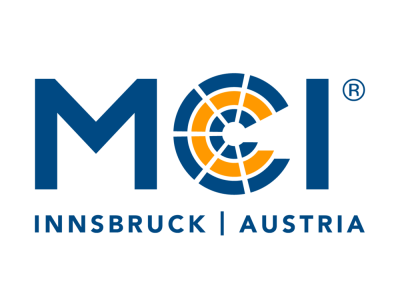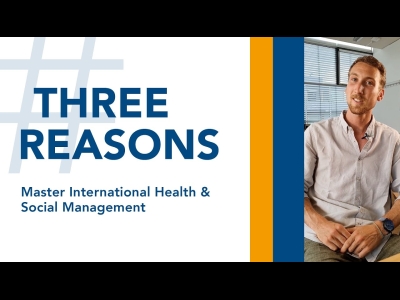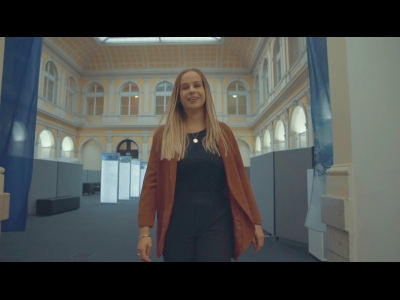International Health & Social Management | Master
Fact sheet
Graduation
Master, Master of Arts (M.A.)
Taught language
Englisch
Specialization
Gesundheit & Soziales
Program Emphasis
Gesundheits- und Sozialmanagement, Gesundheitswesen, Management, Sozialwissenschaft
Course options
Full-time study
Locations
Innsbruck
Contact
Contact person
Prof. Dr. Siegfried Walch
Head of Department & Studies
Prof. Dr. Siegfried Walch
Head of Department & Studies
The International Health & Social Management program combines aspects of health and social services with the fundamentals of economics, political sciences, and international management. The program – taught entirely in English – is designed to meet the growing demand for qualified experts and addresses the future synergies of international cooperation in the global health and social sectors.
You can look forward to experiencing a unique curriculum that aims to bridge health and social services with essential foundations in economics, political sciences, and international management. With the emphasis on practical relevance and international values, the program sets out to equip you with a holistic view of the social and healthcare landscapes and prompt them to navigate the complexities of diverse systems through international case studies or real-world scenarios.
Through carefully curated learning experiences, students continue to develop and hone their 21st Century skills, as well as research-oriented competences. To top things off, each semester features distinctive electives that facilitate students’ desire to specialize in different subject areas and create their own customized learning experience aligned with their interest, passion and career goals.
Finally, the blended learning mode of this program implies a certain degree of flexibility for students to attend lesson on-campus classes or online for selected lectures in the respective courses, while maintaining the opportunities to engage in meaningful interactions with both lecturers and peers.
Are you ready to set sail? Read on to get started!
You can look forward to experiencing a unique curriculum that aims to bridge health and social services with essential foundations in economics, political sciences, and international management. With the emphasis on practical relevance and international values, the program sets out to equip you with a holistic view of the social and healthcare landscapes and prompt them to navigate the complexities of diverse systems through international case studies or real-world scenarios.
Through carefully curated learning experiences, students continue to develop and hone their 21st Century skills, as well as research-oriented competences. To top things off, each semester features distinctive electives that facilitate students’ desire to specialize in different subject areas and create their own customized learning experience aligned with their interest, passion and career goals.
Finally, the blended learning mode of this program implies a certain degree of flexibility for students to attend lesson on-campus classes or online for selected lectures in the respective courses, while maintaining the opportunities to engage in meaningful interactions with both lecturers and peers.
Are you ready to set sail? Read on to get started!
Requirements / Application
 Applicants are required to submit proof of completion of a higher education degree with a minimum of three year’s study (Bachelor degree) in one of the following subjects: Business Administration, Economics, Medicine, Public Health, Nursing or Social, Political or Natural Sciences.
Applicants are required to submit proof of completion of a higher education degree with a minimum of three year’s study (Bachelor degree) in one of the following subjects: Business Administration, Economics, Medicine, Public Health, Nursing or Social, Political or Natural Sciences.
Our program requires high proficiency in English Language skills. Therefore, the proficiency will be based on:
- a personal assessment of our candidates at MCI in September at the beginning of the semester* or,
- additional methods of proficiency can also be proven via various tests (e.g. TOEFL; minimum score of 90, internet based, 580, paper based), (IELTS; minimum score of 6,5), (BEC higher or Certificate of Advanced English (CAE)), or,
- graduating from an English-taught Bachelor degree program.
Tuition / Fees
Duration of study
Career Perspective
 Professional fields
Professional fields
- Public health / health promotion / insurance
- Public administration / social services / social security
- Education / Science / Research
- Regional and economic development / location management
- International cooperation and collaboration
- Consulting / coaching / independent professions
- International organizations (e.g. WHO, OECD, EU, internally active interest groups)
- Social security agencies and private insurance companies
- Public and private hospitals
- Nursing and elderly or senior citizen homes, rehabilitation facilities
- Wellness and cultural facilities
- Public administrative institutions
- Consulting company
- Non-Profit Organizations
- Social services and basic security
- Companies in the pharmaceutical industry
- Politics, associations, interest groups










